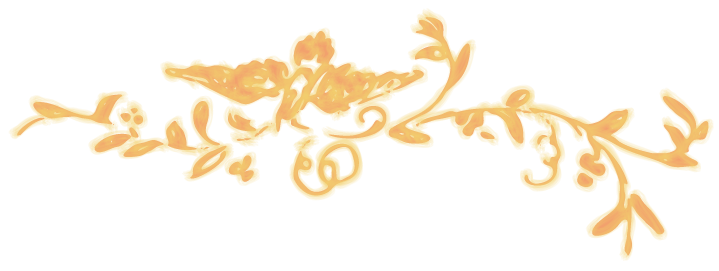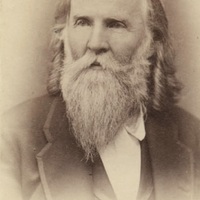Drunkard’s Bride, The
PART FIRST—THE LAMENT.
I.
Lord of my life! By whom hath not
The sparrow fallen unseen and died,
Why hath it been my bitter lot
To live a drunkard’s bridge?
To bear within my breast a heart
Where Sorrow, like a worm, might feed,
And Anguish sheathe the rankling dart
Which makes my bosom bleed?
II.
Ah, why, when they who trod with me
Life’s earlier walks in joy are blest,
Why is my soul condemned to be
By misery oppress’d?
Young gladness is no shield to stay
The shafts of wo unerring sped,
For once was I as glad as they,
In days which long have fled.
III.
That I have been less good or fair,
Not thence the clouds which o’er me brood
For when did wasteful Ruin spare
The beautiful or good?
Full brightly on the brow of morn
May gleam the day-star, like a gem
Whose golden radiance might adorn
A monarch’s diadem:
IV.
But clouds and darkness round about
Its glittering throne their robes will fling,
Till all its burning rays go out,
Before the tempest’s wing:
Fair may the queenly rose unfold
Its blushing petals to the view,
And, with its closing skirts enrolled,
Lock up the evening dew;
V.
But morn with frosty wing will bid
The rose-tree yield its drooping pride,
While, on its breast, the dew-drop hid,
Is in the rude blast dried;
And woman’s eye may softly roll
Beneath a brow of polioshed white,
Fired by the gladness of her soul
With heart-enlivening light;
VI.
But soon the gathering clouds of wo
May quench the brightness of its beam,
Till from the spirit comes no glow,
Save one despairing gleam:
Her cheek may wear the liveliest hue
Of summer’s rose, in beauty drest,
And on her heart, like evening dew,
Love’s holy influence rest;
VII.
But when the wing of care sweeps past,
Her blooming beauty will depart,
And Love, in Scorn’s careering blast,
Fly shivering from the heart,
Right joyously my spirit leapt,
And beat my youthful bosom high,
Ere yet the storm of Sorrow swept
Along the lowering sky.
VIII.
I could have known such gladness still,
Had not the grim Destroyer’s bowl
Poured out its burning floods of ill,
Which waste away the soul.
Oh blissful days! would they come back
And all my darkened soul illume,
Joy then should light my sunset track,
And cheer me to the tomb.
IX.
But why should Hope still point before
To mock the spirit veiled in wo,
With dreams of joy which never more
That anguished soul may know?
And what avails t me the sad
Rememb’rance of my better years,
When once this heavy heart was glad,
These eyes undimmed by tears?
X.
They’re past—their every joy is gone,
And left a heart which cannot heal—
The hand of Death can end alone
The burning woes I feel.
Thou King of Terrors! Unto thee
I come, one welcome boon to crave—
Oh, set my captive spirit free!
I’m weary for the grave.
——
PART SECOND—THE REJOICING
I.
Oh Lord, I know thou rul’st above,
And I adore thy hallowed name,
That Thy Eternal, boundless love,
Is evermore the same.
Exult my Soul!—oh, Earth rejoice!
The Drunkard stands erect once more;
Heart, leap for joy! and thou, my voice,
The choral anthem pour.
II.
Had you gray rocks burst up in flame,
And day leapt out from midnight’s gloom,
And all the dead of every name
Come bounding from the tomb,
Not more unthought the startling sight,
Than when came forth the dead in sin,
And on my soul’s unbroken night,
Joy poured its sunshine in.
III.
Now, now I know there is a power,
To sweep the Spoiler from the land,
The victims of an evil hour
Redeeming from his hand:
Whom Ruin’s heel hath ruthless trod,
Whom Penury bow’d in wretchedness,
The mercy of the living God
Shall lift again and bless.
IV.
The trampled reed He will not break,
The weary one in grief laid low,
Sore-hearted, He will not forsake
And leave to deeper wo.
What though the clouds of life grow dark,
And thicken o’er a stormy sky,
And lightnings rive, and whirlwinds mark
Their foldings, as they fly?
V.
Yet shall theybreak, and in the light
Which streams from joy’s rekindled flame,
Their skirts shall make the heavens more bright
Than ere the darkness came,
The morning star, once short and pale,
Will climb the blooming East, and pour
Its glory where the dun cloud-veil
Had shrouded it before.
VI.
The rose which drooped beneath the frost
Will Spring, with balmy breath, renew,
And on its leaves, the wind had toss’d,
Night shed its holy dew;
And woman’s eye, once more, may burn,
Though Grief had stol’n its light away,
And even her blooming charms return
With joy’s returning ray.
VII.
The heart can love again, and know
The gladness it had known before,
Ere yet the burning hand of wo
Its finer tendrils tore.
To me this is no idle thought,
The wretchedness of half a life
Hath taught it, as but few are taught,
Save the poor Drunkard’s wife.
VIII.
Hope’s twilight beams had almost flown,
And night was dark’ning to despair,
When on my soul the morning shone,
Full, glorious, and fair.
And love, with all its light, returned
When Ruin’s tide was backward rolled,
And in each heart its incense burned,
As it had burned of old.
IX.
Then why despair, with grief oppress’d?
The burdened soul shall yet be free;
But when may come the hallowed rest
It is not ours to see.
Wait, Mortals, for the will of heaven;
Our path is dark, and we are blind,
Yet know the keys of fate are given
To One all-wise and kind.
X.
Oh God! to all who bow in dust,
And long in weariness for the tomb,
Give Thou an everliving trust
To guide them through the gloom.
And in Thine own appointed time,
Make glad the hearts of all who mourn,
Till songs of joy and praise sublime
Wide o’er the world are borne.
- Title
- Drunkard’s Bride, The
- Alternative Title
- Lord of my life! By whom hath not
- Date
- 1844
- Spatial Coverage
- Temperance Poems II
- Bibliographic Citation
- E.D.H. (pseudonym of George Shepard Burleigh). Temperance Poems II. Philadelphia: Merrihew and Thompson, 1844, 53-63.
- George S. Burleigh Papers, 1825-1902. John Hay Library, Brown University. Small Scrapbook 48
- Subject
- Temperance
- Media
-
 The Drunkard's Bride
The Drunkard's Bride


